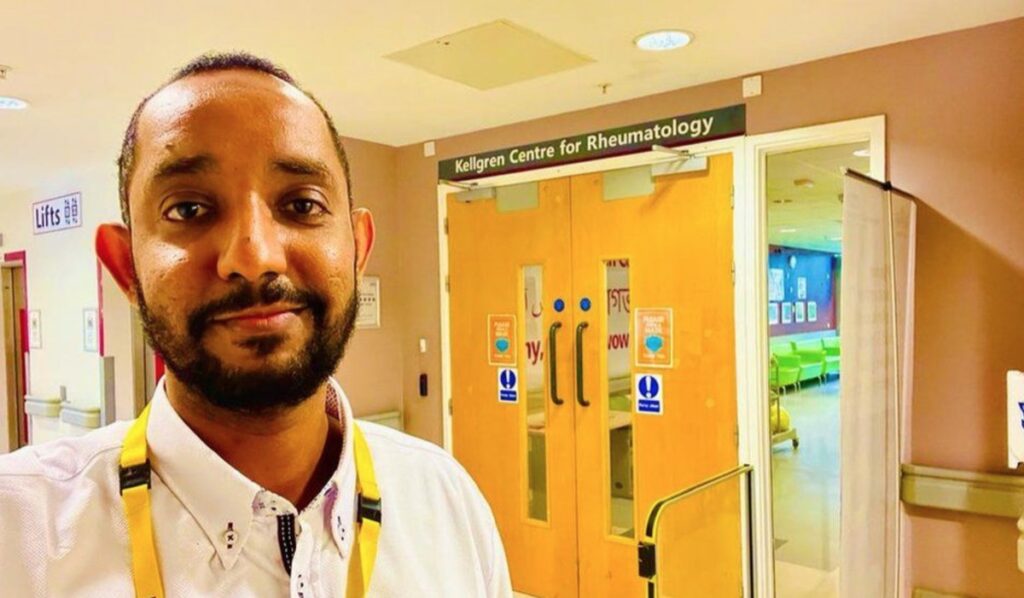
Sudanese-born Dr Abdulrahman Babiker, who was initially refused entry onto an evacuation flight last week, is now back ready to go to work at the Manchester Royal Infirmary.
The NHS registrar became trapped in Sudan after visiting family for the celebration of Eid, and previously had said he felt “betrayed” after making a treacherous journey to the airport, and queuing for 16-hours only to be told the flight was for UK passport holders only.
Despite having a UK work permit, he was told he wasn’t allowed to board an evacuation flight as they only accept UK passport holders. “They said, ‘we are really sorry, this is the guidance from the Home Office’, and soldier took me out,” said Dr Babiker.
The British Medical Association had called on the government to “ensure all NHS doctors, and their families, including those on UK visas are evacuated”.
Following this, in an apparent U-turn on its previous policy, the government allowed NHS doctors in Sudan to board recuse flights out of the country.
Dr Babiker returned to the UK on Friday 28th April.
Fierce fighting across Sudan has left hopes for a peaceful transition to civilian rule in tatters.
Forces loyal to two rival generals are vying for control, leading to violent clashes. Around 500 people have been killed and more than 4,000 injured in the unrest so far, as the capital, Khartoum, has become a war zone.
Khartoum International Airport has been shut for almost two weeks due to the fighting, while the borders of neighbouring countries are hundreds of miles away from the capital.
For almost three weeks, rival factions within the Sudanese military have fought for control, destroying large sections of the capital Khartoum in the process and killing hundreds of civilians.
After initially telling people to make their own way out of the country, the British Foreign office eventually put on a series of rescue flights.
There are a large number of people in Sudan with ties to the UK, partially due to historical links between the two countries.
Sudan was controlled as a British colony between the 1890s and 1956, when it became independent.
More than 2,000 British nationals in Sudan have registered with the Foreign Office under evacuation plans.
In 2020, the Office of National Statistics estimated there were around 35,000 people living in the UK who were born in Sudan, 20,000 of who were Sudanese nationals.















